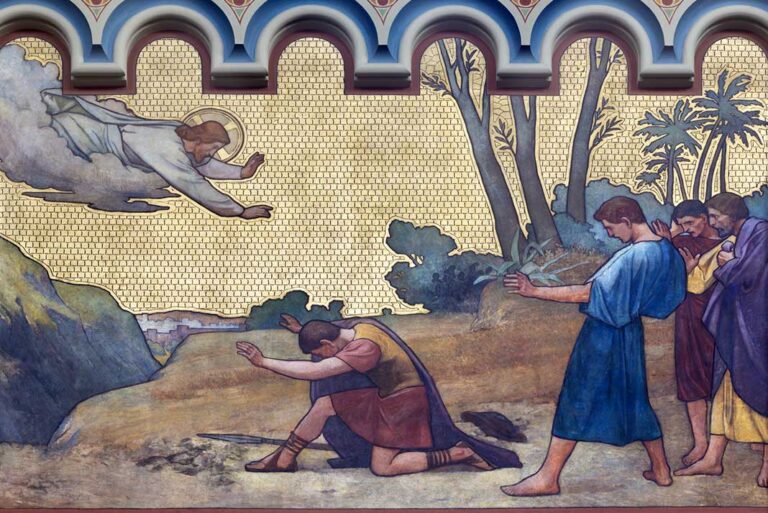It is our responsibility not to allow sin to have control over our bodies. Romans 6:12-13 tells us we must not use our bodies or another person’s body as an instrument of unrighteousness. Sexual immorality is not only a sin against God but is sin against your body, and you are the temple of the Holy Spirit (1 Corinthians 6:18-19).
In this talk, we’ll look at the consequences of sexual sin.
Consequences of Sexual Sin
Proverbs 5:15-23—among other Scriptures—establishes all sexual needs are to be met only within the covenant of marriage, so we’re starting from a marital presupposition as we continue into this lesson.
Never underestimate the power of sexual sin. Sexual sin gives the illusion of pleasure, but any pleasure it gives is always short-lived. Sexual immorality degrades the participants and leads them into shameful behavior. It has terrible consequences, such as:
1. Partners lose the ability to be open with each other
Sexual sin that reaches outside the borders of a marriage leads to isolation within the marriage. The partner engaging in the illicit behavior has to build a wall around himself to keep his partner from finding out what is going on. Sexual sin leads to a double life. Lies—whether blatant lies or by omission—are born to cover. The distance between the two grows, and intimacy erodes.
2. It destroys respect and trust
Those who engage in sexual sin often live in shame and fear that others will find out what they have done. If they are married and violate their vows, the shattered trust can be extremely difficult to rebuild. The effects of the sin reach to husband, wife, children, and even extended family members.
3. The ripened fruit of sexual sin is death of the relationship
When Israel turned away from God, they were referred to as a harlot and a cheating wife. God considers divorce to be violence, as should we! It is the tearing apart of two who have become one (Malachi 2:14-16). Families and friendships are lost as a result of divorce. Spiritual covering is shredded and all sorts of calamities can befall a broken family. I’ve seen physical ailments pop up. I’ve seen children exposed to criminal activity. Financial health usually declines as one household becomes two. I’ve seen addictions rev up. Divorce often makes both children and spouses easier targets for the enemy.
4. Removal from the land
Leviticus 18:1-25 God addresses Israel and gives a long list of unlawful sexual activities—including adultery, incest, homosexuality and bestiality—and ends with “Defile not yourselves in any of these things: for in all these the nations are defiled which I cast out before you: And the land is defiled: therefore I will visit the its iniquity upon it, and the land itself vomits out her inhabitants.” When a population becomes too immoral, that population falls under judgment and we see this happen again and again in the Word. These days, in the case of adultery, the offending spouse is usually sent packing; this would be a local, modern-day example of losing your place in the land.
5. Physical disease can result
Romans 1:24-32 says that God will allow men to reap within their physical bodies the results of sexual sin. There is a vast array of sexually-transmitted diseases. Sexual sin comes with a high price attached to it.
6. Soul ties are formed
1 Corinthians 6:16 says, “Do you not know that he who unites himself with a prostitute is one with her in body? For it is said, ‘The two will become one flesh.’” When you join yourself sexually to another person, you become one with them. More than physical union results; emotional union occurs, too. Even though you may think that sex is no more than a physical act, ties are formed with whomever you have sex. In addition, sexual sin is a sin against your own body, which is a temple of the Holy Spirit. To sin against your body is to degrade the presence of the Holy Spirit. (VIDEO: What are Soul Ties?)
Note: No condemnation for the 1 Corinthians 7-believing spouse. If you divorced during a BC time in your life, maybe you were in ignorance. Simply lay that part of your past down at the foot of the cross in heart-felt prayer.
The Call to Holiness and Right Identity
You are a king and priest reigning in life, seated with Christ in heavenly places. You have been delivered from the kingdom of darkness and have been born again into the kingdom of God. You are a new creation, dead to sin, and are now a slave to righteousness, walking by the Spirit, not according to flesh. Your body is a temple for the Holy Spirit and you are now a partaker of God’s divine nature. You are an alien to this world, in it and not of it.
Tips for Turning Away From Sexual Sin
Remember Jesus is Lord over all creation. You were created through Him and for Him; He is before all things and in Him all things hold together, including your physical body (Colossians 1:16–17). He is Lord of the universe. He gives you the grace if you turn to Him in your weakness (Heb. 4:16).
- Take captive every thought. Our thought life is important! A single random thought does not make sin, but dwelling on it, expanding upon it, pitching camp there—that’s where sin begins to germinate.
- Counseling, community and accountability.
- Identifying triggers (e.g. boredom (Ephesians 5:14–17), stress (Ephesians 4:22–24), etc.) and intentionally avoiding situations that position you for weakness.
- Growing awareness of the call of the flesh; become aware of temptation as it approaches and prayerfully turn away.
- Arm yourself with Word-centered prayer, worship and fasting (Philippians 4:5–7).
References
BillyGraham.org. June 1, 2004. Are all sins the same in God’s eyes? Billy Graham Evangelistic Association. Retrieved from https://billygraham.org/answer/are-all-sins-the-same-in-gods-eyes/.









